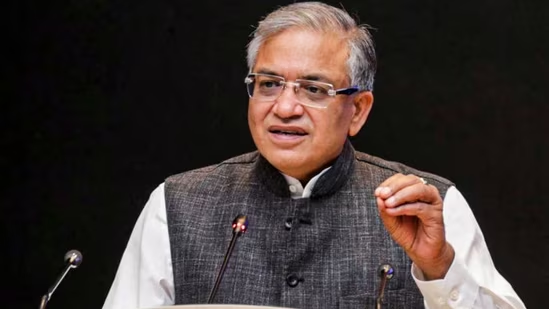Ashoka University Professor Arrested Over Facebook Post Criticizing Media Narrative on Operation Sindoor
Ali Khan Mahmudabad, an associate professor of Political Science at Ashoka University, has been arrested by the Haryana police, just four days after he was summoned by the Haryana State Commission for Women regarding a Facebook post he made about media coverage surrounding Operation Sindoor.
His arrest has sparked widespread condemnation from civil society, academic circles, and human rights advocates.
According to Scroll, Mahmudabad faces serious charges under various sections of the Bharatiya Nyaya Sanhita, including those pertaining to incitement of communal disharmony, rebellion against the state, and insulting religious sentiments. The move has been widely criticized as an attempt to silence dissent and curtail free expression.
Controversial Facebook Post
The controversy stems from a Facebook post Mahmudabad shared on May 8, in which he called out what he perceived as the selective outrage and performative patriotism of right-wing commentators.
He praised the participation of women officers in the Indian armed forces, particularly Colonel Sophia Qureishi, but questioned the silence of those same voices when it came to hate crimes, mob lynchings, and the bulldozing of homes of minorities.
In his post, Mahmudabad wrote:
“Lastly, I am very happy to see so many right-wing commentators applauding Colonel Sophia Qureishi, but perhaps they could also equally loudly demand that the victims of mob lynchings, arbitrary bulldozing and others who are victims of the BJP’s hate mongering be protected as Indian citizens.
The optics of two women soldiers presenting their findings is important but optics must translate to reality on the ground; otherwise, it’s just hypocrisy.”
He reiterated that his remarks were a call for accountability and justice for all citizens, not an attack on women or the armed forces.
Reaction from the Women’s Commission
Despite the nuance of his message, the Haryana State Commission for Women interpreted Mahmudabad’s comments as derogatory toward women in the armed forces and accused him of “promoting communal disharmony.” The Commission demanded his appearance before them by May 23, threatening legal action if he failed to comply.
In response, Mahmudabad strongly defended his position, stating that his remarks had been willfully misinterpreted. “My comments were focused on protecting both citizens and soldiers.
There is nothing in what I wrote that could be seen as misogynistic or anti-national,” he clarified, further noting that the Commission’s notice lacked any factual basis linking his statement to an attack on women’s rights.
Public Outrage and Support
News of his arrest prompted swift backlash from activists, academics, and public intellectuals. Social activist Shabnam Hashmi posted on X (formerly Twitter):
“Prof. Ali Khan Mahmudabad was arrested by Haryana police today and taken to an undisclosed police station. We strongly condemn this harassment.
The Haryana police should actually have someone literate read his post. There is absolutely nothing anti-national or anti-women in it. We demand his immediate release.”
Following his arrest, a petition demanding the withdrawal of the summons and an apology from the Women’s Commission garnered over 1,100 signatures.
The petition was endorsed by a wide range of eminent personalities, including historian Romila Thapar, economist Jayati Ghosh, writer Harsh Mander, filmmaker Anand Patwardhan, and scholar Nivedita Menon, among others.
The petition read:
“Haryana has some of the highest rates of crimes against women in the country. We must urgently prioritize efforts to address gender-based violence and uphold women’s rights, rather than fabricating offenses where none exist.
This episode reflects a growing pattern in which constitutionally guaranteed freedoms—especially freedom of expression—are being curtailed by institutions acting in bad faith.
We call on the Haryana State Commission for Women to retract its summons and issue a formal public apology to Professor Ali Khan Mahmudabad for the baseless and malicious targeting of his speech.”
A Growing Concern for Academic Freedom
The incident has once again raised alarms over the shrinking space for critical discourse and the increasing criminalization of dissent in India. Scholars and civil society leaders have warned that such actions not only threaten the academic freedom of individuals but also undermine the democratic foundations of the country.
As support continues to pour in for Professor Mahmudabad, the broader implications of his arrest remain a topic of urgent concern in India’s intellectual and political landscape.




